Theoretical chemistry extends our ability to study chemical systems by examining the fundamental origins of reactivity, electronic behavior, and complex organization. By developing and applying novel computational and analytical techniques, we push the frontiers of statistical mechanics, electronic structure, chemical dynamics, and emergent properties in chemistry, materials science, and biophysics.
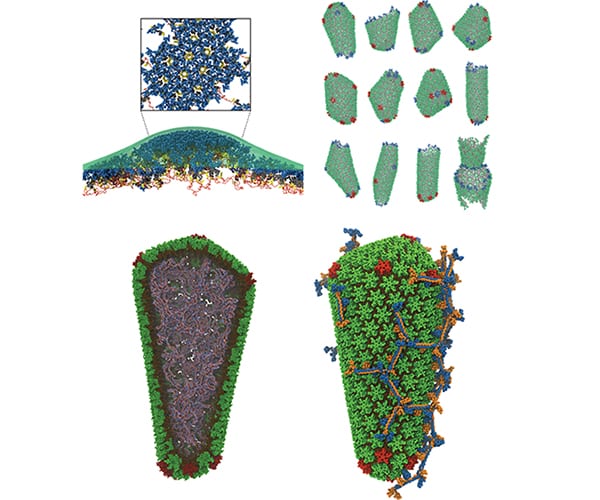
BIOPHYSICS
Researchers in CCTCh use state of the art theoretical and computational techniques to probe a variety of biophysical processes and discover new unifying principles governing these complex multi-scale biophysical processes. Research directions include studies of protein folding, population dynamics of cells, the dynamics of the actin cytoskeleton, and the self assembly of viral capsids.
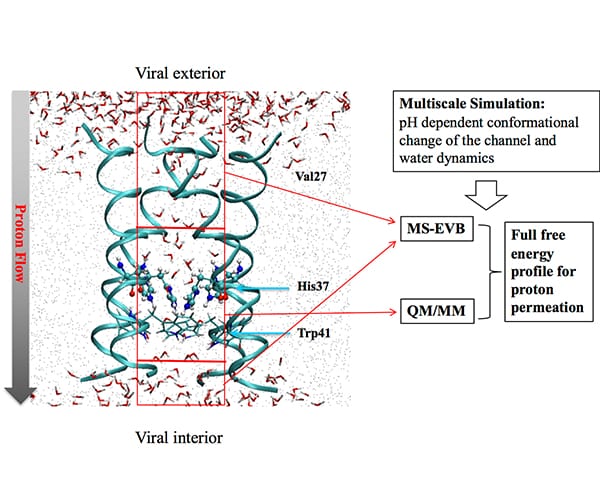
QUANTUM DYNAMICS AND CHARGE TRANSPORT
Understanding the dynamics of charge transport is an important problem with implications for energy storage and retrieval. Researchers in the CCTCh, in close collaboration with experimental groups, developed new theoretical and computational tools to study such quantum dynamics.
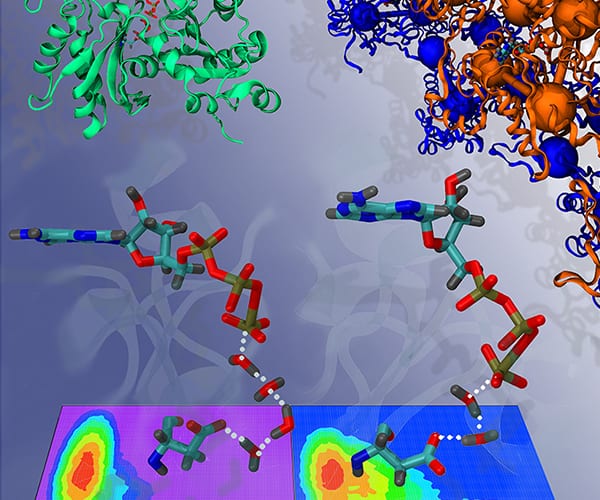
METHOD DEVELOPMENT AND MULTISCALE SIMULATIONS
In order to probe complex multi scale biological and chemical processes, researchers in the CCTCh develop novel theoretically rigorous coarse-graining strategies for multi scale simulations. Researchers in the CCTCh also focus of developing new algorithms to enhance sampling of rare events and recovering their statistics.
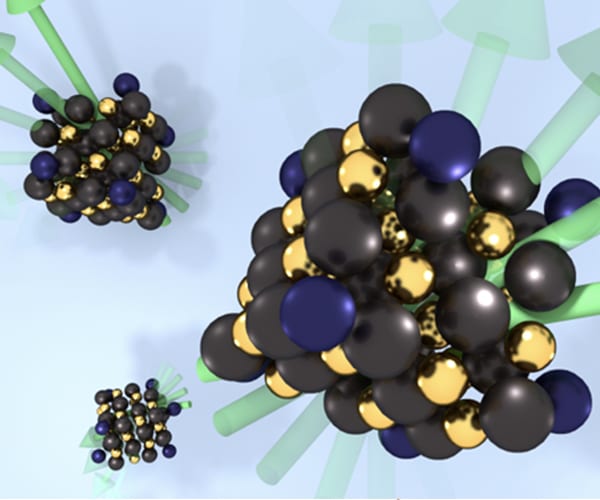
ELECTRONIC STRUCTURE THEORY FOR MATERIALS AND MOLECULES
Researchers in the CCTCh develop and use new techniques to efficiently predict, from first principles, the properties of molecules and materials, even those operating in extreme conditions.
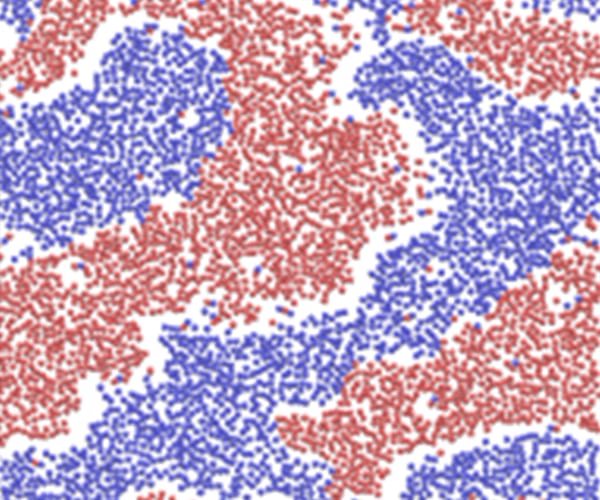
NON-EQUILIBRIUM STATISTICAL MECHANICS
Many naturally occurring systems are far from equilibrium and consume energy to power a variety of novel functionality. Understanding the statistical mechanics of such systems remains a grand challenge. Researchers in the CCTCh work collaboratively on this important class of problems and develop new theoretical and computational techniques to study non-equilibrium phenomena.